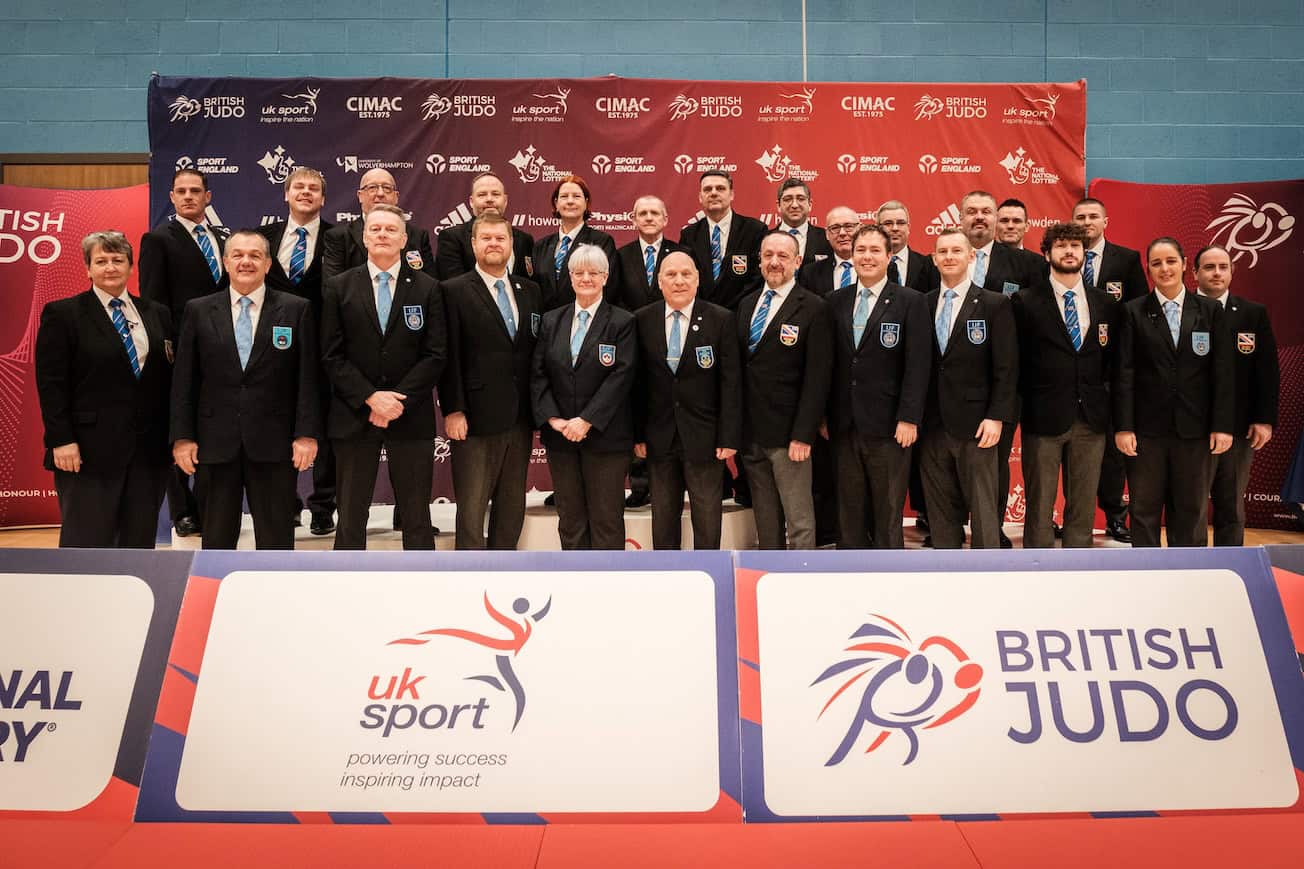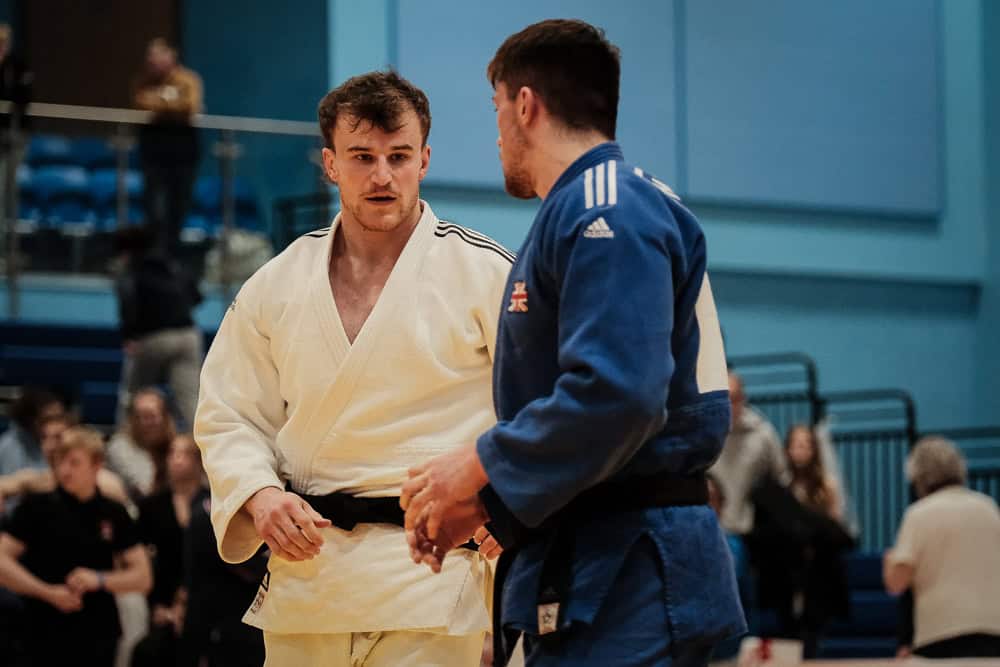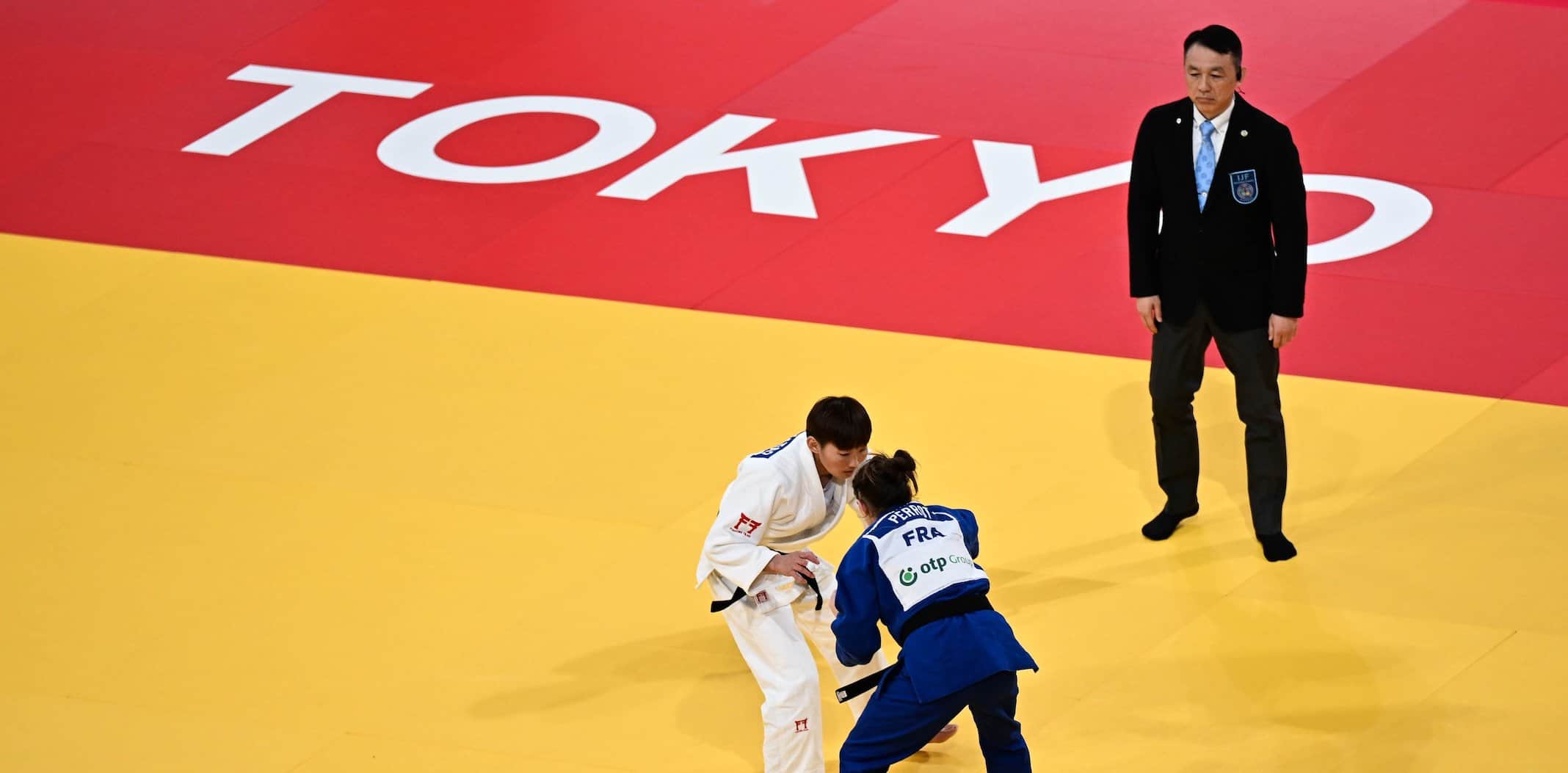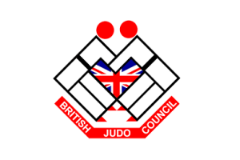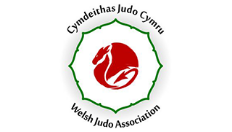British athletes returned last week from a two week training tour of the home of judo, Japan. Two teams, men and women, spent two weeks training in Japan, experiencing some tough training with some of stars of judo. The two teams returned last week and we’ve caught up with Lead Coaches, Jean-Paul Bell and Kate Howey who’ve shared an account of the experience.
Week 1
Jean-Paul Bell, led the men, Sam Hall, Neil McDonald, Stuart McWatt, Ashley Mckenzie and George Smith to their first stop in Tokai.
“The two teams both left together but we split up as we got off the plane. We went to Tokai University and Kate and the women went to the National Training Centre”, Jean-Paul Bell said.
“Tokai is one of the strongest Universities in Japan, with its alumni boasting numerous World and Olympic Champions. This current training group is no exception and the GB men were able to practice with around 100 athletes including current superstars Takato, Nakaya, and Takachi.”
 “Training began at 9am and as guests, the GB team wore the red belts and stayed out in middle for the majority of the practice.
“Training began at 9am and as guests, the GB team wore the red belts and stayed out in middle for the majority of the practice.
“The sessions were high quality and lasted for around 2 and a half hours, with additional Ne-waza situation changes thrown in.
“Tired and bruised, the team had a great week and moved on to Tokyo for what was described by Tokais Sato sensei as ‘very tough practice’ in Kokushikan University.”
Kate Howey led the team of women, Sarah Adlington, Megan Fletcher, Gemma Howell, Lucy Renshall, Jemima Yeats Brown, Ebony Drysdale Daley, Nekoda Davis and Bekky Livesey, to their first stop at the National Training Centre.
“At the National Training Centre, the women were practicing with the top women in Japan on a camp held by the companies that players belong to like Komatsu and Sumitayo”, Kate explained.
“There were over 200 women on the mat and it was randori every day. For the five days there were 65 Ne-waza practices and 90 Tachi-waza practices. This was really tough with the top 8 women of every weight in attendance and our players having to do sets of ten Tachi-wazas out the front with a red belt on, so there was no escape.”
“This was really good for Sarah Adlington as there were many heavyweights on the mat which is a rare opportunity.”
Week 2
 At the start of week two the men headed to Kokuschikan. “Kokuschikan welcomes you to the practice with a drum chorus that emulates a ‘battle cry’ as their Rei which lasts for approximately one minute. It sends chills down your spine and certainly raises the pulse.” Take a look at the Jean-Paul Bell’s video here.
At the start of week two the men headed to Kokuschikan. “Kokuschikan welcomes you to the practice with a drum chorus that emulates a ‘battle cry’ as their Rei which lasts for approximately one minute. It sends chills down your spine and certainly raises the pulse.” Take a look at the Jean-Paul Bell’s video here.
“The practice itself was along the lines of Tokai. The GB athletes again wore the red belts and opened up with 5x5x3 out in the middle.
“They were not alone and were joined by Tokai and Nittaidai Universities who were visiting for the week. The mat was taken by Suzuki sensei and was littered with superstars of our sport.
Meanwhile the women traveled to Teikyo University. “We were at Teikyo University from Monday but due to a competition at the weekend the training didn’t start until Wednesday, so the women ventured out to a company”, Kate said.
“The company was Komatsu and it is the best company run team in Japan for women with World Champion Udaka [-57kg] as one of their stars. There were only twelve women in the company and we were joined by some high school girls and one of these was the Junior World Champion at -63kg, which was great for Jemima and Lucy.
“This was the hardest session of the two weeks and all of our girls could tell you a story of how hard it was and what they learnt from it.”
“The team then went to Teikyo each day and this is a fairly strong University with Matsamoto Olympic Champion [-57 kg] as one of many on the mat. After two weeks of training the women did 92 Ne-wazas and 130 Tachi-wazas.”
The opportunity to train in Japan is an important and valuable experience for all the athletes, as Kate explains: “This was a great experience for some of the younger players and will hopefully set them up for beginning of the Junior competition programme. For the seniors it was good to get the volume of randori.”
Jean-Paul Bell added: “The GB athletes trained extremely hard over the last two weeks and all completed over 100 World class randoris in the home of our sport.”
Take a look at the image gallery to see some of the photos from the trip here >>>


